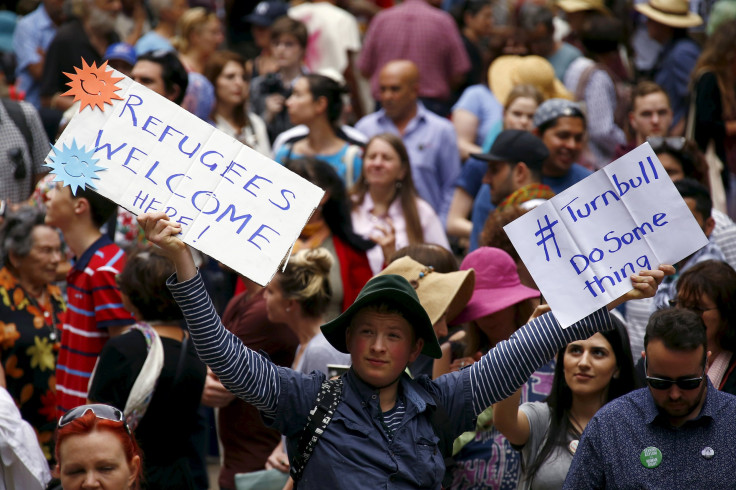Australian State Leader Offers To House Stranded Asylum Seekers

The premier of Western Australia state, a member of conservative Prime Minister Malcolm Turnbull's Liberal Party, has offered to accept refugees from Australian-funded asylum seeker detention centers amid growing concern about conditions at the camps.
Under Australian law, anyone intercepted trying to reach the country by boat is sent for processing to camps on the tiny Pacific island of Nauru or to Manus Island off Papua New Guinea. They are never eligible to be resettled in Australia.
Australia and Papua New Guinea said on Wednesday that they would close the Manus Island facility, but gave no timeline. New Zealand has offered to take in some of the refugees but Canberra has long resisted the offer.
"We would certainly accommodate a number of them in Western Australia and we'd certainly support them as a state government," Western Australian Premier Colin Barnett told the Australian Broadcasting Corp on Wednesday night.
Harsh conditions and reports of rampant abuse at the camps have drawn wide criticism at home and abroad. Australia says its hardline policy is needed to stop deaths at sea during the dangerous boat journey from Indonesia to Australia.
Australian Immigration Minister Peter Dutton on Thursday stood by the government's policy ruling out settling the detainees in a third country, casting doubt over the fate of the remaining 850 refugees on Manus and 500 in Nauru.
"It's never been about tearing down the fences, it's about what to do with the people trapped behind them," Daniel Webb, director of legal advocacy at the Human Rights Law Centre, told Reuters.
"There's absolute clarity about what should happen but no clarity whatsoever about what will happen."
There are no plans to close the Nauru camp, which is under renewed scrutiny after a newspaper published leaked documents detailing reports of more than 2,000 incidents of sexual abuse, assault and attempted self-harm, many involving children.
News of the closure of the Manus Island facility did not immediately generate much hope amongst the refugees there, many of whom have spent years in detention and suffer from mental health issues.
"Everybody is tired, people think this news will make us happy but everyone is same like before," Kurdish Iranian refugee Benham Satah told Reuters from Manus Island.
"I want to believe there is something good happening but I can't. I just focus on seeing tomorrow."
© Copyright Thomson Reuters 2024. All rights reserved.




















